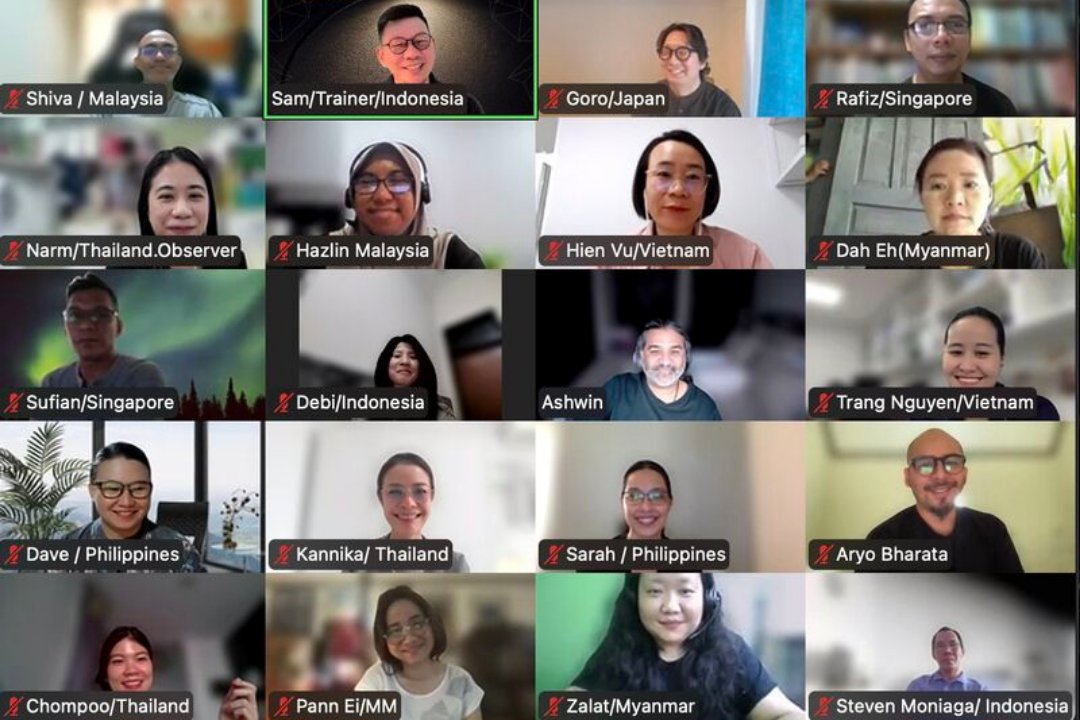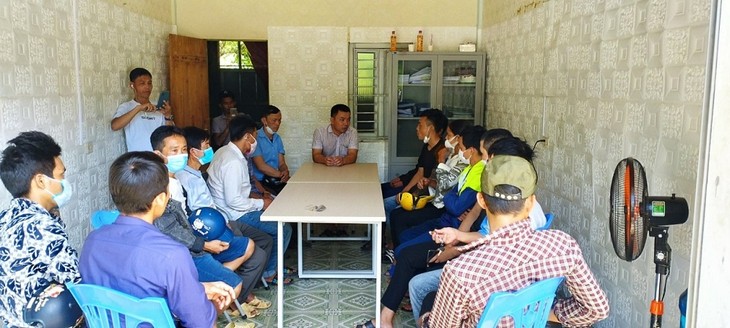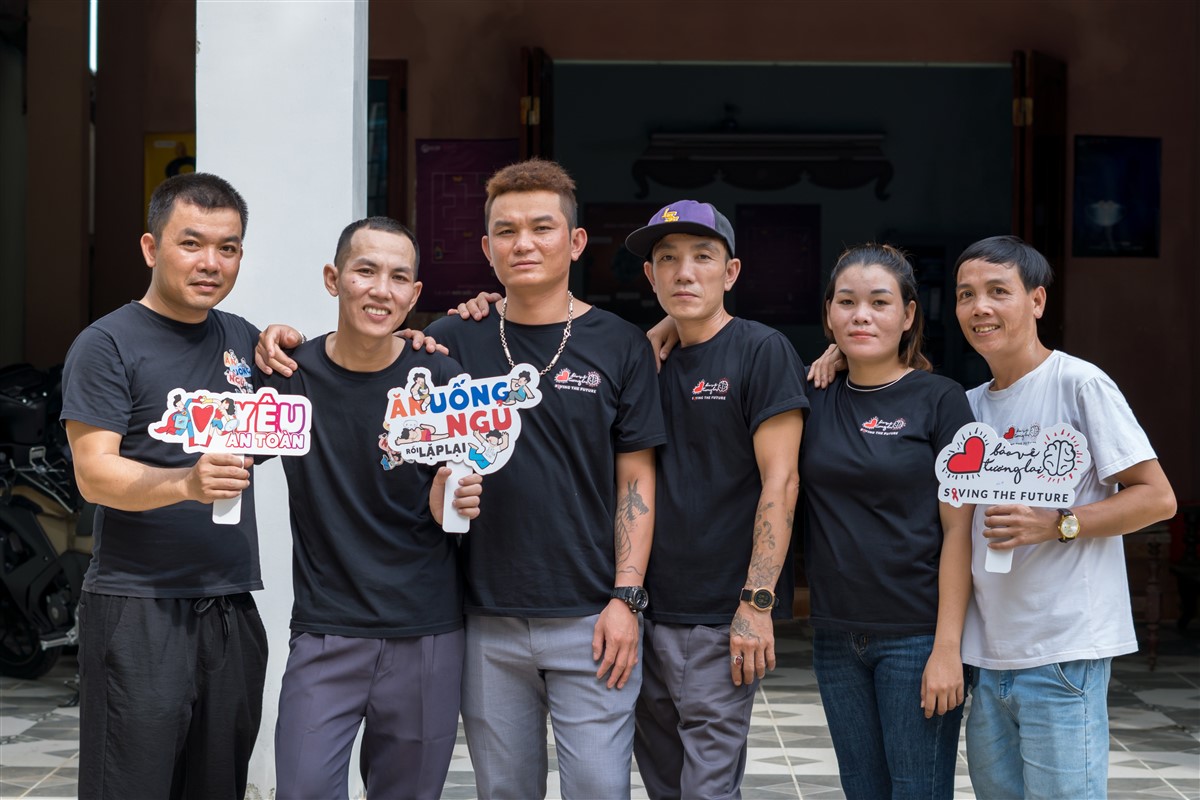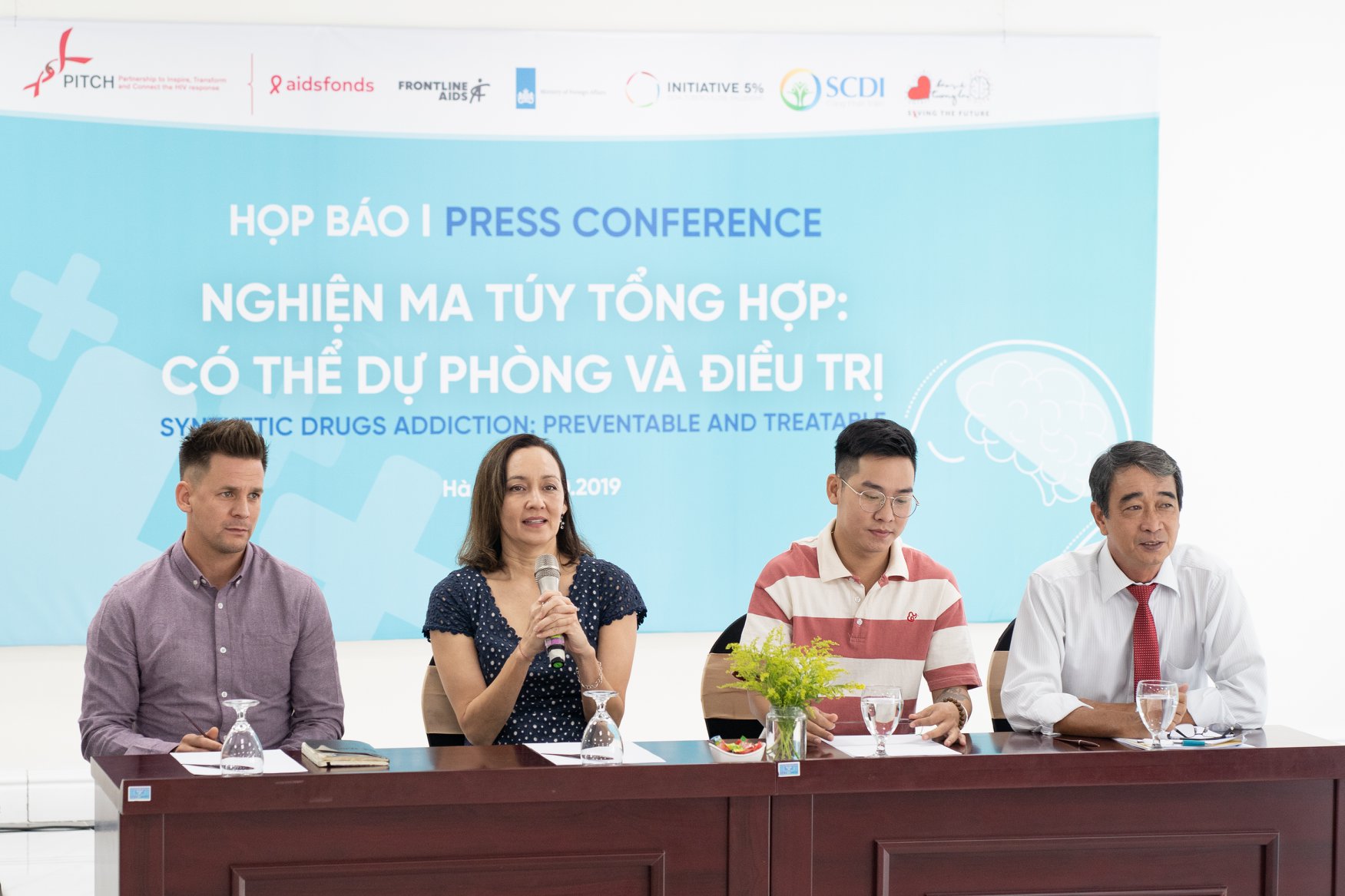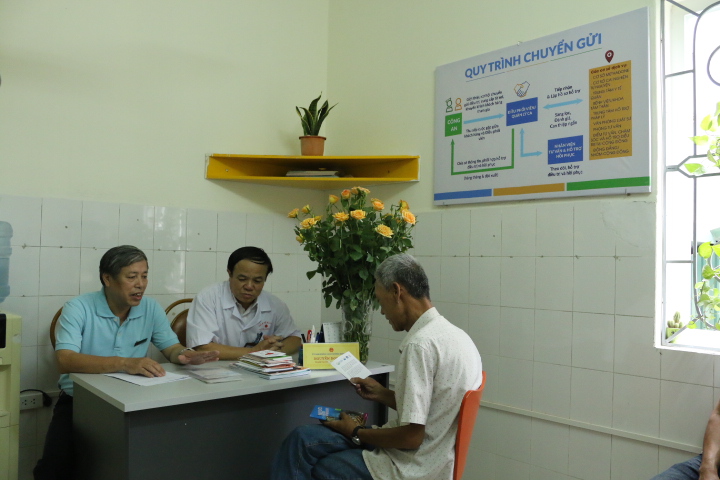Khuất Thị Hải Oanh, founder of the Centre for Supporting Community Development Initiatives (SCDI), talks to Vnews about solutions to support young individuals who have been involved with drugs
Is the trend of younger individuals engaging in drug use creating challenges in providing support and treatment for drug addiction?
It is important to note that the human brain does not fully mature until around the age of 24, according to neuroscience. During this developmental process, if the brain is exposed to substances that affect the central nervous system, such as drugs, alcohol, or tobacco, it can lead to alterations in brain structure and slower growth. The brain may develop at a lower level of functioning as a result. Additionally, if individuals are introduced to psychotropic substances at an early age, their brains may perceive these substances as an inevitable part of life, increasing the risk of addiction and making treatment more challenging.
To protect children from the dangers of drugs and other harmful substances, it is crucial to prevent early exposure. This includes substances classified as narcotics, as well as alcohol and tobacco. Nowadays, the market is flooded with various new psychoactive substances, as indicated by a report from the United Nations Office on Drugs and Crime. Between 2009 and 2020, 548 new psychotropic substances were detected, and the actual number available on the market is likely higher. This abundance of psychotropic substances further surrounds young people, increasing the risks they face.
Whether a substance is labelled as a drug or not, psychotropic substances can impact the central nervous system and carry addictive properties. This has a significant impact on the younger generation.
In response to this issue, the ordinance on the order and procedures of the People's Supreme Court to consider compulsory rehabilitation for individuals aged 12 to 18 was approved by the National Assembly, and came into effect on March 24, 2022. What is your opinions on this?
I think implementing compulsory detoxification for teenagers poses significant challenges due to their ongoing developmental stage. Teenagers have their families, teachers, and other influential figures in their lives, both at home and in educational institutions. When placed in a rehabilitation centre, they may encounter new friends and teachers. The responsibility of managing their drug problem falls upon the teachers at the centre. Working in such facilities is exceptionally demanding as it requires facilitating their development, education, life skills, and addressing their addiction simultaneously. This is a complex task that necessitates a well-trained, professional, and experienced team with genuine care and compassion.
In conclusion, the rejuvenation of drug use among younger individuals does present difficulties in providing support and treatment for drug addiction in this target group. It is crucial to address this issue by focusing on prevention, providing comprehensive education, and ensuring that rehabilitation centres have highly skilled and caring staff who can effectively support young people in their recovery journey.
Is stigma from society still a challenge in supporting young people who have been involved with drugs?
Yes, the stigma surrounding drug users and addicts creates significant barriers during their recovery journey. It discourages individuals from seeking information and help, as they fear the consequences and judgment associated with their drug use. For instance, if someone is new to drugs and has only tried marijuana, they may hesitate to ask whether they are addicted or if there are any potential effects. The fear of stigmatisation can deter them from seeking accurate information and support, leading to potential negative consequences. Families also fear being stigmatised and labelled as having addicted or drug-using children, which further discourages individuals from seeking help.
I have spoken to many people struggling with drug addiction, and they have shared that the invisible stigma they face pushes them deeper into drug use. Many individuals express a genuine desire to quit and have made numerous attempts to do so. However, encountering alienation, judgmental gazes, and societal ostracisation drives them back to drug use as a means of finding temporary comfort. This pervasive stigma exacerbates the challenges faced by those seeking recovery.
Apart from societal stigma, what are other reasons why drug addiction treatment in homes and communities has not achieved desired outcomes?
Recently, there has been a policy shift towards investing in community-based treatment. However, it is essential to ensure that the investment is directed appropriately. Effective addiction treatment requires a comprehensive approach that incorporates neuroscience, behavioural science, social science, and considers cultural and economic factors. Unfortunately, the implementation of training programs and addiction treatment counselling is still in its early stages and has not been deeply and thoroughly integrated.
The individuals working on detoxification and addiction treatment within the community often lack specialisation, proper resources, funding, and training. The focus is often more administrative in nature. However, to facilitate recovery and support addicts, the primary investment should be in community-based initiatives. While there may be instances where individuals require treatment at dedicated centres, the majority can benefit from community support. Thus, the key emphasis should be on investing in community-based programs, providing adequate resources, training, and support to create a comprehensive and effective addiction treatment network.
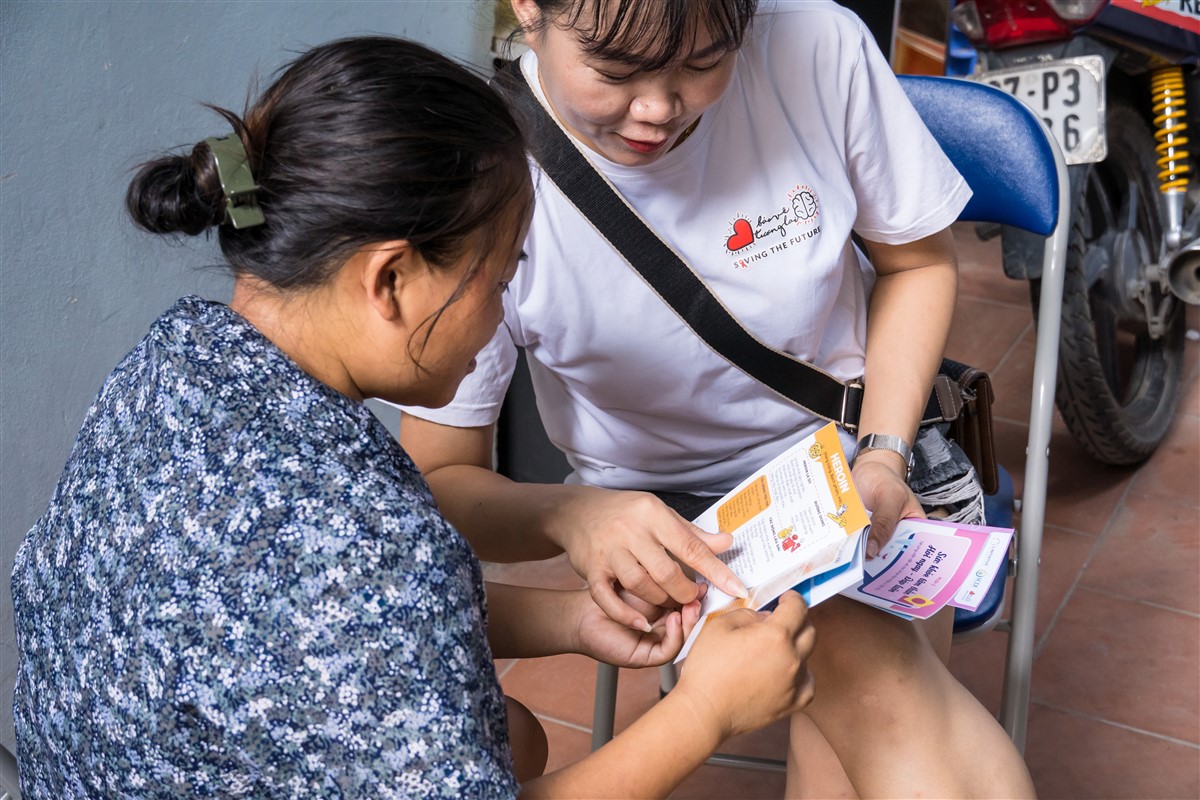
Outreach worker sharing the impact of drug use on health and well-being- SCDI Photo
What activities is the Centre for Supporting Community Development Initiatives (SCDI) conducting to support this cause?
Certainly, there are various activities that support interventions and treatments for drug addiction. In our centre, these activities can be categorised into three groups.
The first group focuses on interventions for individuals using opioid drugs. Our main approach is to support them in accessing treatment, which is considered the gold standard for opiate addiction. We assist them in finding and staying in treatment programs specifically designed for opioid addiction. Additionally, we implement harm reduction programs and interventions for stimulant drug use.
The second group involves interventions for individuals using substances to cope with mental health issues. Here, we provide services like mental health support and harm reduction interventions for stimulant drug use. The primary intervention method is behavioural intervention, as we do not have specific medications for this purpose. To address this gap, we have trained a team of paramedics who can offer guidance and advice on harm reduction strategies to prevent psychosis and intoxication.
The third group focuses on prevention efforts for young people who have not yet used drugs but are at risk. This includes children of drug users or those living in challenging environments such as homelessness or impoverished neighbourhoods. We intervene by implementing programs that aim to deter them from initiating drug use.
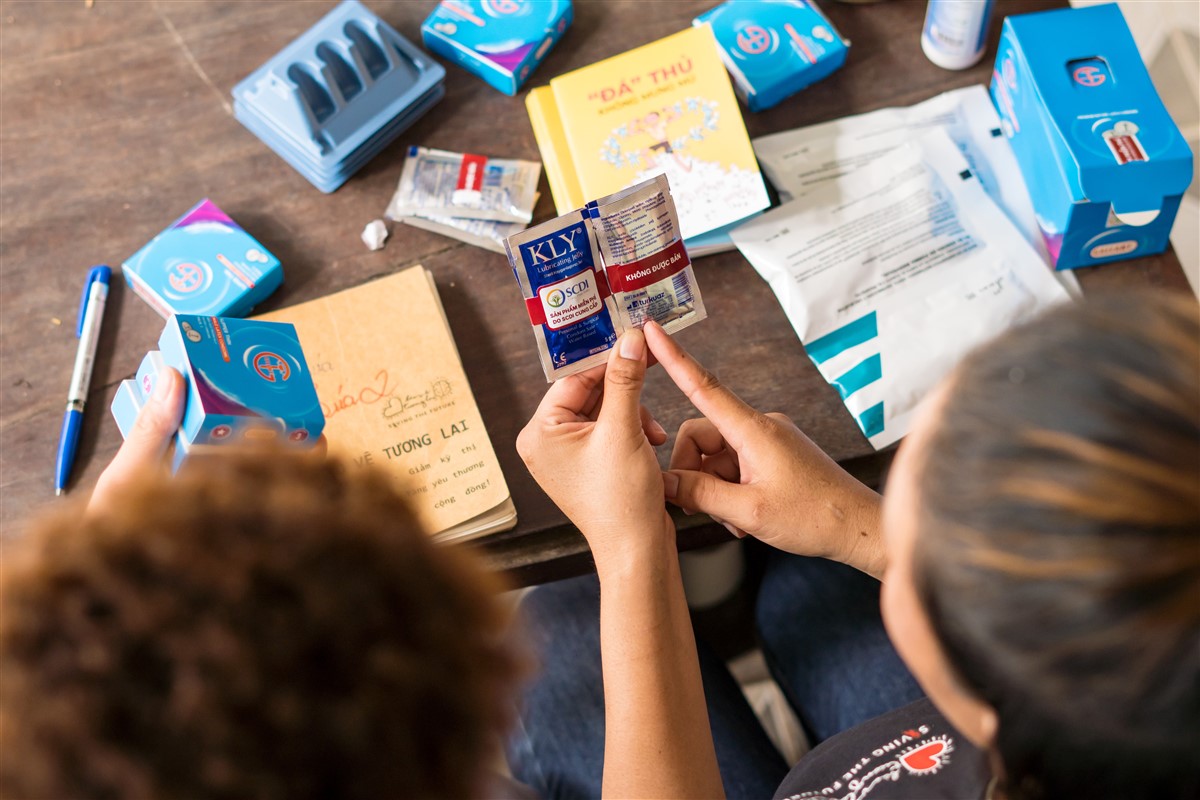
Providing harm reduction items for drug users - SCDI Photo
Considering the complex and evolving nature of new drug developments, how can we innovate to improve the effectiveness of drug addiction treatment?
It is crucial to ensure that every teenager is equipped with an "anti-drug vaccine," analogous to how we have COVID-19 vaccines. The most potent anti-drug vaccine is the love and support provided by their families. Adolescence is a period of heightened vulnerability to drug use, and nurturing a loving family environment can significantly reduce the risk. Extensive evidence supports the notion that when children feel loved and are equipped with life skills, their likelihood of engaging in drug use decreases significantly.
In cases of addiction, professional treatment is essential. It is important to acknowledge that addiction is not solely a matter of willpower or saying no to drugs. Addiction is a complex medical problem that requires serious and comprehensive treatment approaches. It is imperative to address addiction as a medical condition and provide the necessary resources and expertise for effective treatment. By combining love and support from families with evidence-based interventions, we can enhance the effectiveness of drug addiction treatment and make meaningful progress in combating addiction-related challenges. VNS

CBO training on drug interventions.- SCDI Photo
VietNamNews



